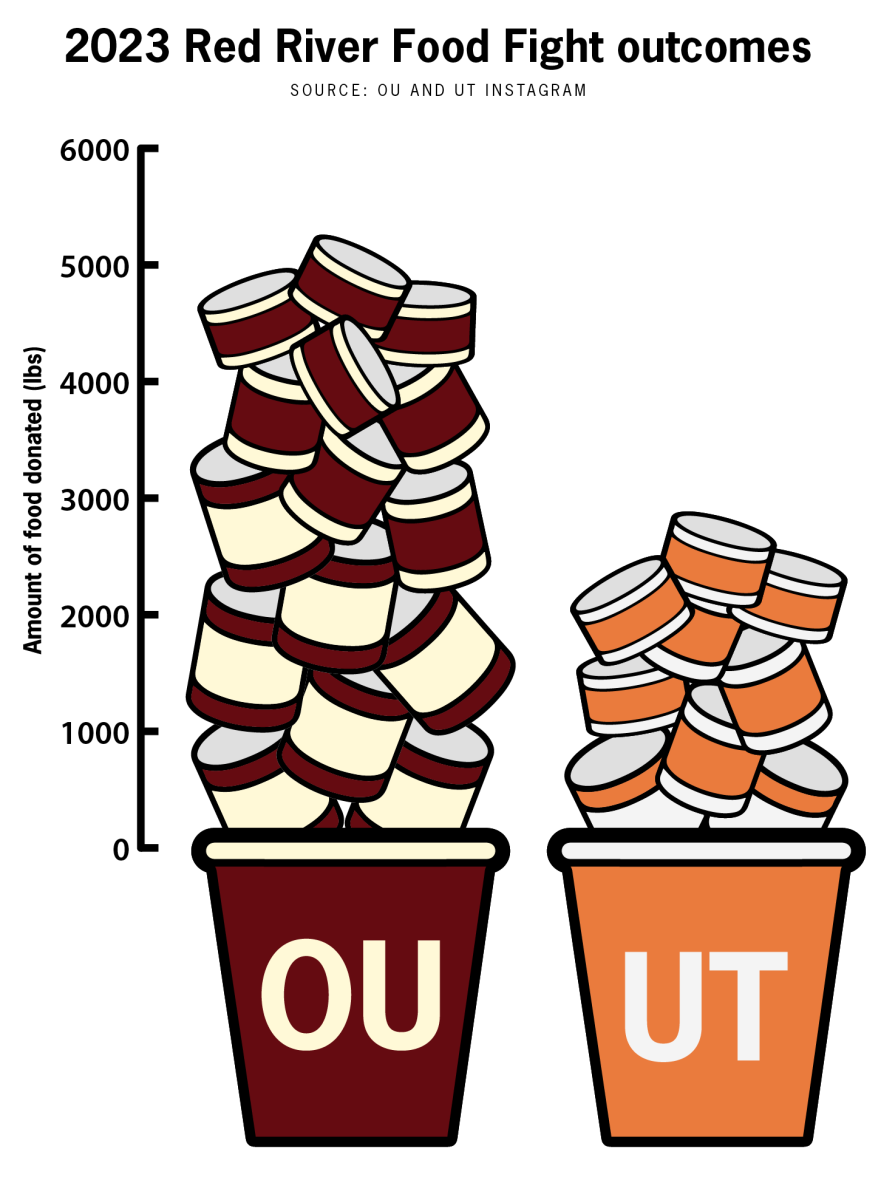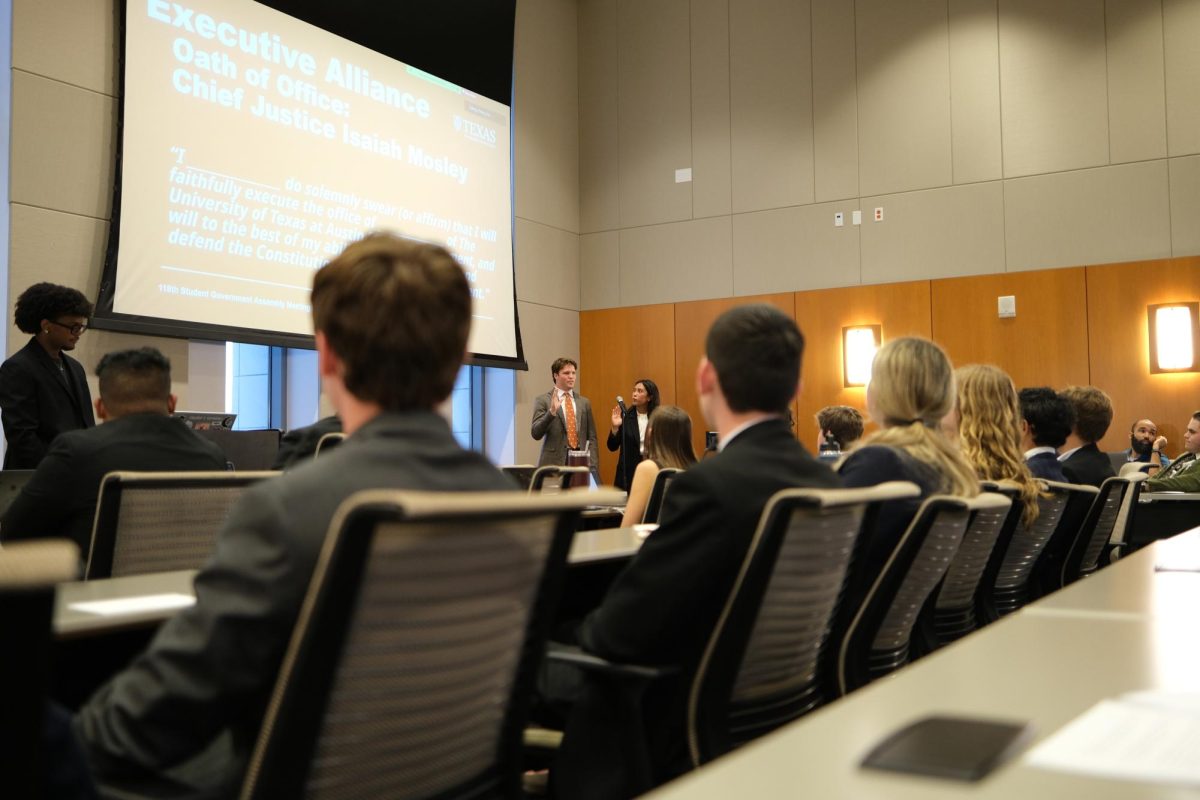The Red River Food Fight, a competitive food drive held in September between the University of Texas and the University of Oklahoma, played on the classic rivalry to bring more than 8,000 pounds in donations to the universities’ food pantries.
Hosted by UT Outpost, UT Student Government and the OU Food Pantry, the drive aimed to ease food insecurity for students and faculty, increase recognition of the pantries and help destigmatize the conversation of food insecurity. UT and OU donated 2,865.7 and 5,213 pounds, respectively.
Royce Coleman, the OU Food Pantry associate director of campus engagement, said one in three college students nationwide face food insecurity, meaning their access to food fails to meet their needs to lead a healthy life. This impacts students’ mood, health and ability to learn.
“You could be walking on campus and you see somebody and you have no clue that they’re sacrificing some part of their life to make sure (they have) food,” Coleman said. “They may be missing a class, buying textbooks (instead of) food, (or) paying for cheap, fast food just because it’s the only food they can afford instead of getting actually good, nurturing food.”
Coleman said multiple international students thanked him for the pantry, as they often struggle finding resources in a new country. He said graduate students often rely on the pantry weekly as they juggle jobs and classes.
Valeria Martin, the assistant director for basic needs at the Office of the Dean of Students, said UT Outpost helps support students who have their own families or care for loved ones.
“There’s a lot of different life pieces mixed in with being a student that can impact a student quite a bit, and their financial stability, and then ultimately being food insecure,” Martin said. “The college student population can be a vulnerable population for that (reason) — that’s why we exist.”
Despite UT having approximately 20,000 more students than OU, UT lost the food drive by 2,347.3 pounds. Midway through the competition on Sept. 20, both universities posted an update on Instagram. Martin said donations soared after the post.
Janice Vanzura, a Hyde Park Food Pantry employee, said greater advertising throughout the entire competition could help boost donations. She said many students overlook the power of a single can, discouraging them from donating.
“(A pantry visitor) said to me, ‘If anybody ever asks what you do, you tell them you save lives,’” Vanzura said. “To the average person, one can (seems like) that’s not going to be a big deal, but if every person on campus brought one can, that’s 60,000 cans. Think about the impact that that would have on our community. It’s incredible.”
Coleman said OU increased engagement through social media posts, including a video with the OU president. He attributed a lot of the donations to competitions between organizations and Greek life.
Martin said she hopes next year will see an increase in donations. This year marked the first drive in two years, so she said students will likely be more aware of the event next year.
“(The drive) is always going to be a benefit to UT Outpost because regardless of what we collect, it’s going to be in the hands of students,” Martin said.




















